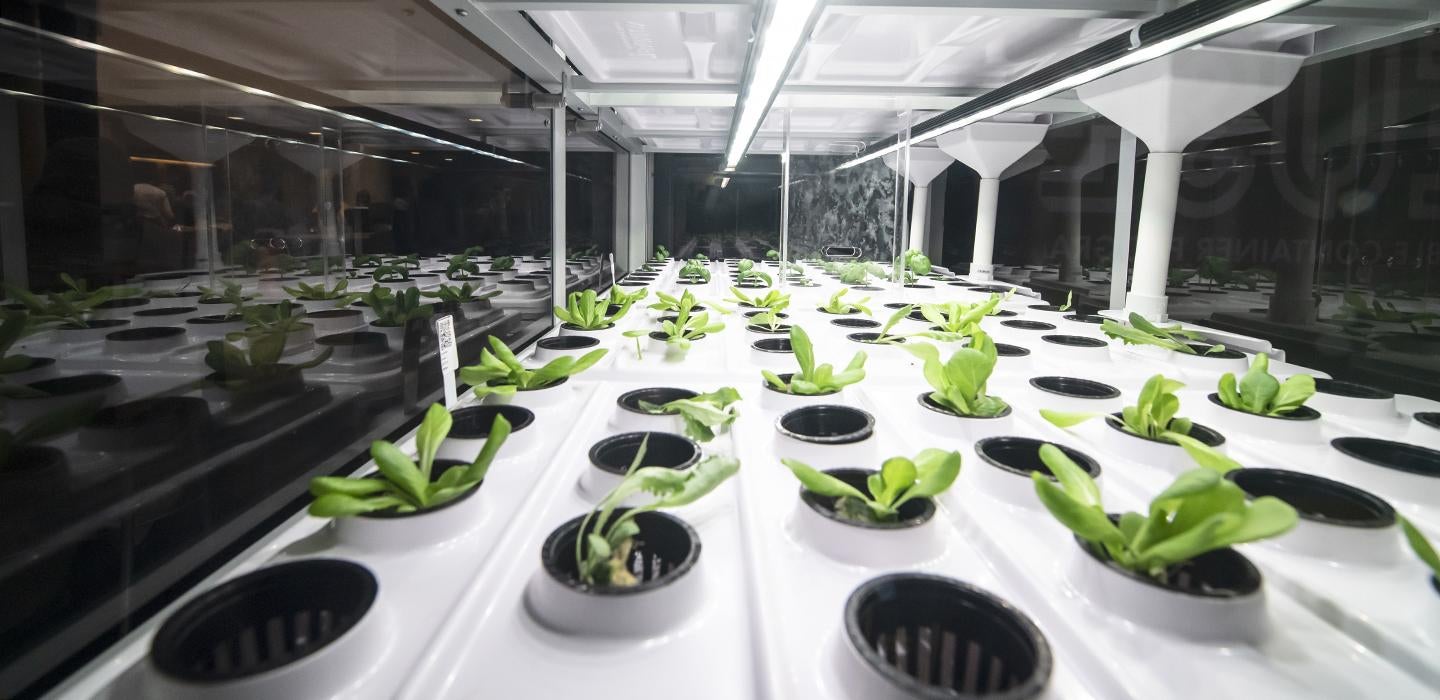
Subscribe to Pittwire Today
Get the most interesting and important stories from the University of Pittsburgh.Pitt is now home to the largest installation of micro-farming units on any campus in the country.
In partnership with Babylon Micro-Farms, Pitt Eats installed hydroponic growing units over winter recess in The Eatery, The Perch, Cathedral Café and Schenley Café.
The installation of the micro-farms is intended to help increase awareness among diners about sustainable food and the food system by showing them where food comes from and how food grows — creating a connection between the students and the food they eat.
“Installing hydroponic micro-farms is one way we fulfill our commitment to providing healthful, green, sustainable food for our communities whenever possible,” said Quintin Eason, vice president of operations of Pitt Eats.
“The hydroponic micro-farms save water, reduce carbon emissions and reduce the strain on the land. The Babylon Micro-Farms use 90% less water, are free of GMO’s, pesticides or inorganic filters,” he said, adding, “the units are monitored through a cloud system, so experts from Babylon Micro-Farms can assist if any issues arise.”
Wasabi arugula, pea shoots, marigolds, mint and sorrel are just a few varieties of fresh herbs and vegetables grown in the micro-farms.
“These units give us the opportunity to expand our offerings and provide some different flavors for the Pitt community,” said Danielle Galloway, Pitt Eats’ senior executive chef.


